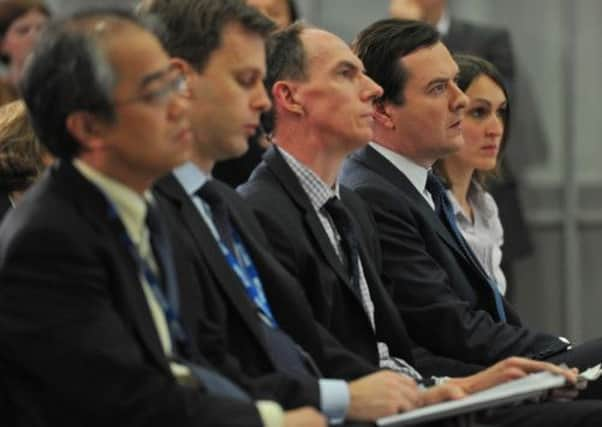Leaders: George Osborne’s Plan B | Poor healthcare


Although the Prime Minister is right to believe that only by countries acting together can big transnational corporations be forced to pay a fair proportion of their profits in tax, he may find that the increasingly Euro-sceptic bent of his party will mean that his ideas, however reasonable, may be met with a frosty indifference across the continent.
It might, therefore, be some time before they are even ready to be accepted but, in the meantime, there is a more immediate problem that Mr Cameron and his Chancellor should be addressing, namely the sluggish pace of recovery in the United Kingdom which was highlighted by the IMF. Yesterday, the organisation accepted that the Chancellor’s cuts programme had earned the government international credibility, but argued that the UK government should consider slowing the pace of spending reductions and boost the economy by bringing forward infrastructure investment to reduce what it called the “drag” of austerity measures.
Advertisement
Hide AdAdvertisement
Hide AdIt is a line of argument that many economists and others – including, it should be pointed out, the SNP-controlled Scottish Government and this newspaper – have made for some time. With the renewed backing of the IMF, it is harder for the UK government to ignore.
Responding to the report yesterday, Mr Osborne said the coalition would not duck the economic challenges that it faced, but gave little indication that the UK government would change course to adopt a plan B. The Chancellor’s response was disappointing to say the least.
Across the UK, including in Scotland, there are any number of infrastructure projects – from road building to home building to school building – which would benefit society, create jobs and kick-start the economy as the IMF suggests. The Scottish Government is already doing this very successfully. There is no excuse for the Chancellor not to do so.
Given that the IMF says the measures should, overall, be “fiscally neutral” – in other words that there may have to be difficult decisions on spending elsewhere – there would be no shame in Mr Osborne announcing further funding for infrastructure across the UK now.
With the influential Centre for Economic & Business Research predicting today that whoever wins the next UK election will have to make further spending cuts to avoid a financial crisis, the pressure on Mr Osborne to act decisively is even greater. Tacking tax avoidance, while commendable, can wait. We need real growth and soon.
No excuses for poor healthcare
With the ever-increasing sophistication of medicine and medical care, it is easy to forget that what usually matters most to patients in hospital are the most basic, simple, treatments which nurses and doctors can provide.
A timely reminder of that comes in a report from the Scottish Public Services Ombudsman, Jim Martin, who has
criticised two health boards – Greater Glasgow and Clyde and Lothian – for the way they looked after patients who suffered from bed sores.
Advertisement
Hide AdAdvertisement
Hide AdIn both cases, the people were admitted to hospitals for treatment of another condition and either developed serious bed sores or existing bed sores become considerably worse. These painful sores were simply the result of poor treatment.
Mr Martin is withering in his finding, saying the issue of
pressure sores, as they are known, needs urgently to be addressed. Shockingly, he reveals this is
not the first time he has highlighted the problem. He adds that “apart from in rare and exceptional situations, pressure sores should be a thing of the past in Scottish hospitals”.
This report makes troubling reading for health boards and health professionals. There is no reason why the vast majority of patients should suffer from bed sores. Simple measures such as turning patients regularly and using inexpensive ointments will help prevent them.
Nurses and doctors are, of course, under pressure in the health service, but this cannot be an excuse for failing to prevent something that causes patients untold misery but is easily preventable. Bed sores should, as Mr Martin says, be a thing of the past in Scotland’s hospitals.